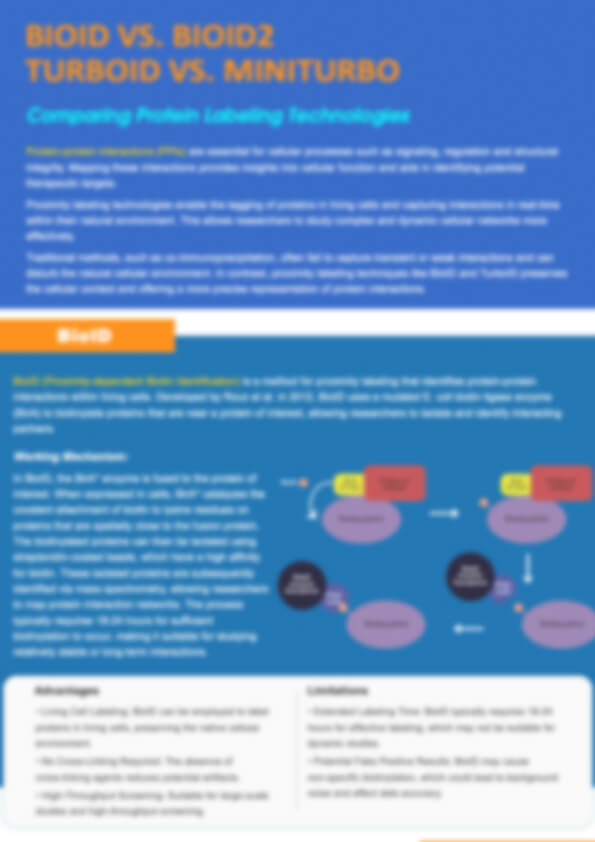Comparing BioID, BioID2, TurboID, and miniTurbo
About the Infographics
In biological research, understanding protein-protein interactions (PPIs) in living cell system is crucial for elucidating cellular functions and mechanisms. Several proximity labeling techniques, including BioID, BioID2, TurboID, and miniTurbo, have been developed to map protein interaction networks in living cells. Below is a comparison of their key features:
- BioID Technology: Uses the biotin ligase enzyme BirA* for proximity-based tagging in living cells. It provides reliable long-term labeling but requires 18-24 hours and may cause non-specific biotinylation. This method is ideal for mapping interaction networks in cancer and neuronal cells.
- BioID2 Technology: An optimized version of BioID with a smaller enzyme, providing higher precision and reduced interference. It also requires 18-24 hours for labeling, making it suitable for detailed studies in yeast and mammalian cells.
- TurboID Technology: Features a fast-acting biotin ligase enzyme for rapid labeling within 10 minutes to 1 hour. This technique is best for dynamic studies but may have higher levels of non-specific labeling and background signals. It is ideal for quick assessments of cellular signaling events.
- miniTurbo Technology: A refined version of TurboID with a smaller enzyme that provides fast labeling and minimizes non-specific interactions. This method is suitable for studying proteins in confined cellular environments.
This infographic highlights the key features and mechanisms of these four technologies. Select the technology that best aligns with your research needs to gain deeper insights into protein interactions. For more information, contact us or download our comprehensive guide.
You may be interested in:

Note: Items with "*" are required.
We want to work with you to provide the information needed for scientific research to help do a better job.